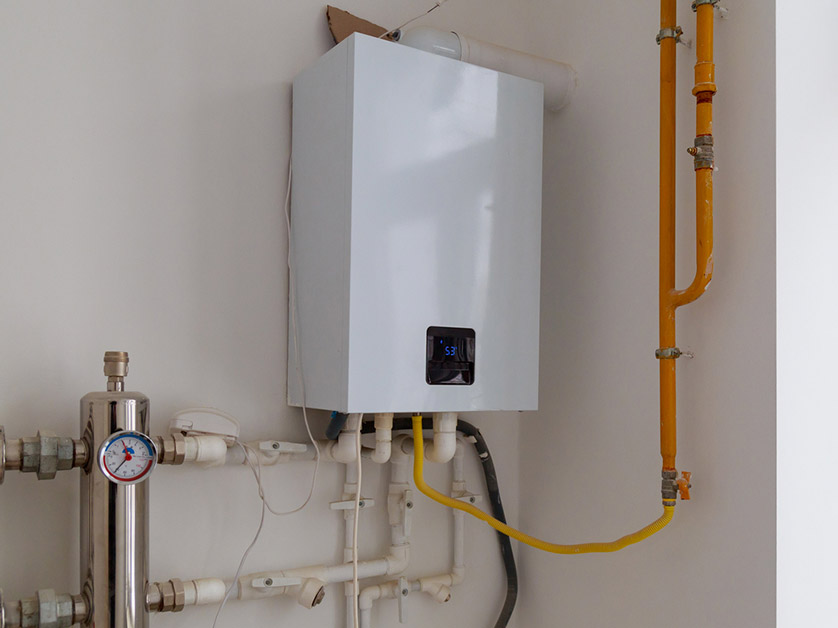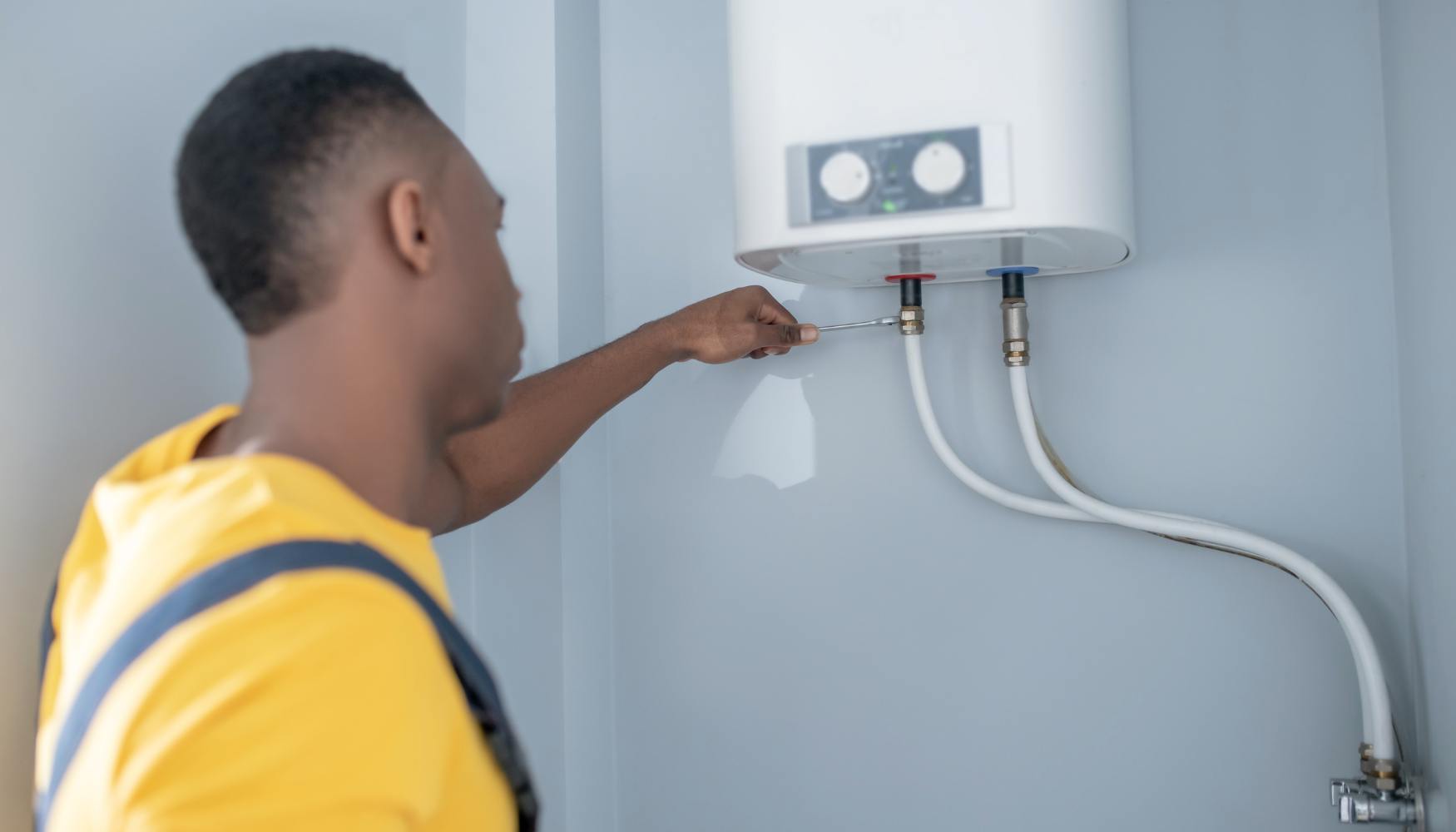Each person maintains his or her own piece of advice with regards to Six Benefits of a Tankless Hot Water Heater.

In a globe where ease and efficiency preponderate, it's not a surprise that homeowners are constantly on the lookout for smarter means to handle their home's energy consumption and convenience. One technology that has actually progressively gotten popularity is the tankless water heater. Yet exactly what makes these systems stand apart from the conventional tank-based versions a lot of us matured with? Let's dive in and discover the advantages of tankless water heaters, assisting you determine if it's time to make the button in your home.
Introduction
Picture this: you step into the shower after a long day, anticipating a comforting cascade of hot water, only to be welcomed by icy droplets since the last individual used all of it up. Sound acquainted? Traditional water heaters store a fixed quantity of warm water, meaning you're at the mercy of that container's supply. Tankless systems, on the other hand, heat water on demand. No more running out mid-shower, no more fumbling with timetables simply to make certain warm water is readily available.
Understanding Tankless Hot Water Heater
What Are Tankless Hot Water Heater?
Tankless water heaters, occasionally referred to as on-demand or instant water heaters, give hot water just as it's needed. As opposed to keeping gallons of pre-heated water, these devices kick into activity the moment you activate the tap. Water goes through a warmth exchanger, heating up in real-time, implying you get an uninterrupted circulation of warm water without the demand for a large storage tank resting idly by.
How Do They Differ from Traditional Systems?
Conventional heating units hold a storage tank of hot water, utilizing power to keep that container at a consistent temperature level. Tankless devices eliminate the standing supply, minimizing wasted power and the bulky footprint of a big cyndrical tube. Basically, you're upgrading from a "stockpile" way of thinking to a "made-to-order" approach.
Common Types of Tankless Units
Tankless hot water heater usually can be found in 2 varieties: gas and electrical. Gas versions often tend to provide higher circulation prices, ideal for larger homes, while electrical designs usually serve smaller homes and are typically less complicated to mount. Additionally, some systems are made for point-of-use (offering one fixture) while others can handle the entire home's hot water demands.
Secret Benefits of Tankless Hot Water Heater
1. Endless Hot Water Supply
Ever before had to set up showers so everybody obtains their reasonable share of hot water? With tankless, that ends up being a distant memory. As long as the heating unit's flow capability isn't gone beyond, you can take back-to-back showers without developing into a popsicle.
2. Energy Effectiveness and Expense Financial Savings
Say goodbye to heating a giant storage tank's well worth of water and keeping it warm all the time. Tankless heating units minimize standby power losses, which can lower energy bills. While the preliminary expense could be higher, the long-term savings frequently justify the investment.
3. Space-Saving Design
If your home is short on storage space, eliminating the large container liberates useful area. Tankless units are portable and can frequently be mounted on wall surfaces, hidden in corners, or mounted in tight energy wardrobes without grabbing all of the entire space.
4. Longer Lifespan
A properly maintained tankless hot water heater can outlast its tank-based relative. Conventional containers may last 10-15 years, while tankless versions can keep chugging along for 20 years or more, making them a solid financial investment with time.
5. Improved Water High Quality
Storing water in a storage tank can occasionally cause sediment build-up or a slightly "off" preference. With tankless systems, fresh water is warmed on the spot, decreasing the chances of sediment build-up and potentially providing cleaner-tasting water.
Factors to consider Before Switching
Though the advantages are engaging, it's wise to consider a few factors prior to completely dedicating.
First Financial Investment Expenses
Tankless heaters generally feature a higher in advance price tag. In between the unit itself and possible installment adjustments, the preliminary cost might offer you sticker shock. But bear in mind to see it as a lasting financial investment.
Installation Requirements
Depending upon your home's framework, you could require extra electric capacity or gas line upgrades. Guarantee you understand the setup needs and seek advice from a specialist to stay clear of shocks.
Reviewing Your Home's Water Usage Patterns
If your home simultaneously uses multiple fixtures with high hot water need, make certain the device's circulation price satisfies your demands. Knowing your use patterns aids you select the ideal size and type of tankless heater.
Upkeep and Treatment Tips
Tankless systems are fairly low maintenance, but they aren't set-it-and-forget-it devices.
Regular Cleaning and Descaling
Hard water minerals can build up in the warmth exchanger, affecting performance. Regular descaling (usually recommended each year) keeps the system going for peak performance.
Annual Expert Examinations
A yearly checkup from an expert ensures small concerns are caught early. They'll examine the device's performance, try to find leakages, and help maintain optimal effectiveness.
Making Certain Proper Ventilation
For gas designs, appropriate air flow is vital to securely expel exhaust gases. Ensure venting systems are tidy and properly mounted to prevent any kind of potential security risks.
Contrasting Different Brands and Models
Not all tankless hot water heater are developed equal.
Investigating Trusted Producers
Try to find trustworthy brand names with a history of generating quality units. A reputable supplier commonly offers better customer assistance and longer guarantees.
Reading Testimonials and Individual Feedback
Individual reviews and comments from next-door neighbors or pals that have gone tankless can use valuable understandings. Sometimes, real-life experiences can be extra telling than advertising sales brochures.
Installation: DIY or Expert?
While some home owners enjoy dealing with jobs themselves, tankless installation could not be the very best time to break out the tool kit.
Benefits and drawbacks of DIY Installment
A DIY set up could conserve money, but it comes with dangers. Wrong installment can bring about inefficiency or safety concerns. If you come in handy and have experience, it might be feasible-- yet proceed with care.
When to Call an Expert Plumbing Technician
For the majority of, calling a pro ensures every little thing's done correctly. A specialist plumber understands regional codes, sizing needs, and venting criteria, decreasing the threat of incidents.
Taking full advantage of Effectiveness
You've invested in a tankless unit-- currently optimize its effectiveness.
Ideal Temperature Settings
The majority of people set their devices in between 120-140 F. Changing the temperature level can improve convenience and financial savings. Experiment to discover a wonderful spot that does not lose power.
Pairing with Low-Flow Fixtures
Want to extend your device's capacities? Consider mounting low-flow showerheads and taps. They decrease water usage, enabling your tankless system to deliver a stable stream of hot water without straining.
Ecological Effect
Tankless water heaters align with greener living goals.
Lowered Carbon Impact
By using much less energy and just heating water as needed, tankless systems can decrease your home's carbon footprint, lowering your environmental impact.
Preserving Natural Resources
Less power consumption and much less thrown away warm water translate into less natural deposits being made use of, an environmental win-win.
Who Benefits The Majority Of from Tankless Heating units?
The appeal of tankless heating systems is that they can match a variety of houses.
Huge Family Members vs. Single Passengers
Big family members might love the limitless warm water supply, while single residents appreciate the energy savings from not heating an entire storage tank for just a single person's morning shower.
Home Owners with Limited Space
If your home is short on square footage, losing the cumbersome container liberates area for various other fundamentals-- or maybe simply much more breathing space.
Eco-Conscious Consumers
Going tankless aligns with eco-friendly worths, guaranteeing you're not squandering power or resources.
Future Patterns in Tankless Water Heaters
The world of home appliances is ever-evolving, and tankless water heaters are no exemption.
Smart Home Integration
Imagine readjusting your hot water heater's temperature level through an app or obtaining maintenance alerts on your phone. As smart home tech developments, we'll see more connection and comfort.
Advancements in Modern technology
R&D is continuously enhancing warmth exchangers, making units a lot more reliable and durable. Future designs may be also quieter, extra small, and far better matched for varying climates.
Conclusion
Picking a tankless hot water heater is greater than simply upgrading your home's hot water system; it's investing in long-term comfort, energy efficiency, and a greener lifestyle. By considering your house's water use, being mindful of installment needs, and dedicating to regular upkeep, you can delight in a steady stream of warm water without the baggage of a large tank. As technology advances, you can expect also smarter, extra reliable tankless options that not only make your life less complicated however likewise profit the planet.
Six Benefits of a Tankless Hot Water Heater
Continuous hot water. Large families know what a pain it is to hop into the shower and get blasted with cold water. With a tankless hot water heater, this doesn't happen as long as you install the right size tank. Even if you don t have a large family, a tankless hot water heater allows you to use multiple appliances at once without running out of hot water. Reduced energy bill. Because tankless heaters are essentially "off" when the water tap is not on, they use less energy overall. In fact, an ENERGY STAR-qualified tankless hot water heater can use 25-40% less energy than a conventional water heater, and save the average family $100 or more annually. Longer life. Get more bang for your buck with a greater lifespan. Specifically, conventional hot water heaters last about 10-13 years compared with up to 20 years for a tankless hot water heater. Less space. Did you know that tankless hot water heaters can be hung on a wall almost anywhere in your home? Plus, at 28" tall by 20" wide and 10" deep, a tankless hot water heater takes up a lot less space than a conventional hot water heater, which is 60" tall and 24" wide. Good for the environment. In addition to reducing the amount of energy used, most propane-fired tankless water heaters are made of recycled materials. Many conventional tanks, on the other hand, go directly to the dump once they've served their purpose. High safety ratings. Conventional water heaters are "always on" and thus pose safety risks more often than do tankless heaters, which only operate when warm water is needed. https://www.rotorooter.com/blog/water-heaters/six-benefits-of-a-tankless-hot-water-heater/

Do you really like reading about Six Benefits of a Tankless Hot Water Heater? Give a remark directly below. We would be delighted to listen to your suggestions about this write up. We hope that you come back again soon. Do you know somebody else who is sincerely interested in the niche? Why not share it. Thanks so much for taking the time to read it.
Call Today